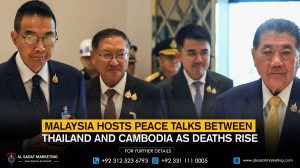A significant political milestone in Syria’s postwar transition has been reached with the announcement of the country’s first parliamentary elections following the overthrow of former President Bashar al-Assad.
According to Mohammed Taha al-Ahmad, the head of the Higher Committee for People’s Assembly Elections, the poll is set for September 15–20. Al-Ahmad told the state news agency SANA on Sunday that plans were on to make sure the poll was held in a way that was “transparent and secure.”
These will be the first elections held under President Ahmed al-Sharaa’s interim rule. He took office after Assad was overthrown in December by a swift uprising of rebels.
President al-Sharaa will directly appoint one-third of the 210 seats in Syria’s People’s Assembly.
In an interview with Erem News, Hassan al-Daghim, another member of the elections committee, stated that the remaining 140 seats would be filled via direct elections held in electoral colleges throughout all provinces.
Constitution in Transition
A provisional constitution that al-Sharaa signed in March and that calls for the creation of a transitional legislative body called the People’s Committee serves as the framework for the elections. Until a permanent constitution is ratified and general elections are held, which analysts estimate could take several years, this interim assembly is anticipated to remain in place.
Analysts have expressed concerns about the elections’ timing, too, considering the precarious political and security situation in a large portion of the nation.
Israeli Strikes and Sectarian Conflicts
Earlier this month, Druze fighters and armed Bedouin tribes engaged in fatal sectarian warfare in the southern province of Suwayda, escalating tensions. Hundreds have reportedly been killed and many more displaced by the conflicts, which started with a string of kidnappings and retaliatory attacks.
Several reports indicate that Syrian government forces sided with the Bedouin factions, despite their intervention being nominally to stop the protests. According to local media and eyewitness reports, government troops were responsible for the burning and plundering of Druze citizens’ homes as well as their deaths.
After Israel began a series of airstrikes against Syrian military installations and the Defense Ministry headquarters in Damascus, the bloodshed attracted international attention.
The strikes were carried out “to defend the Druze minority” and to prevent further escalation in the border regions, according to an Israeli military spokesperson.
A Split Transition
Institutional failure, sectarian mistrust, and political instability have plagued the post-Assad transition. While some sections of the populace see the overthrow of Assad as a new beginning, others, especially in violent areas, continue to have doubts about the new Damascus government.
The opposition parties in Syria have responded to the impending elections in a variety of ways thus far. Some have criticized the process as being too early and exclusive, while others have urged participation to help mold the future government.
Concerns about the government’s media domination and the lack of impartial election observers have also been voiced by human rights organizations.










